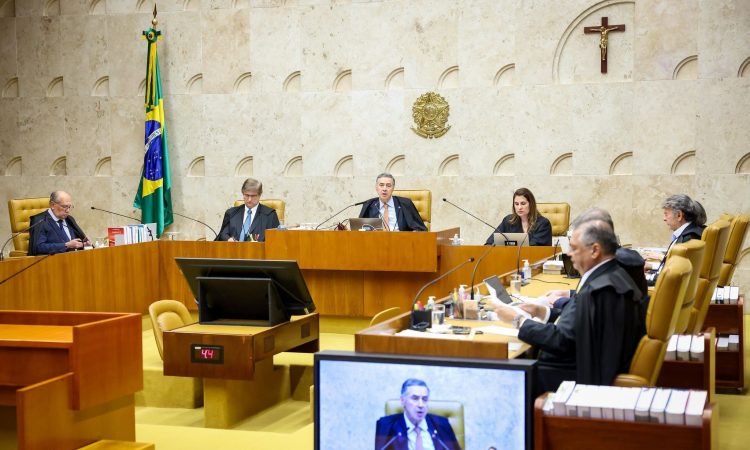
The Federal Supreme Court (STF) has five votes in favor of recognizing that it is possible to refuse to undergo a specific medical procedure for religious reasons.
The ministers also voted so that people who make this choice are guaranteed the right to alternative treatments that are already available in the Unified Health System (SUS), including outside their city of residence, if necessary.
The trial began this Thursday (19) and was suspended due to the session time. The topic should be analyzed next Wednesday (25).
What’s on trial?
The Court analyzes two actions that deal with situations involving Jehovah’s witnesses. One of the precepts for believers of this religion is .
The religion of Jehovah’s Witnesses is a Christian denomination that claims to have around 8.8 million adherents worldwide, preaching in 239 countries.
As believers refuse to receive blood transfusions, following the precepts of religion, lawsuits are filed seeking to recognize the right to respect and protection of religious freedom.
The processes are reported by ministers Luís Roberto Barroso and Gilmar Mendes.
The judges presented proposals for specific theses for each case, but which go in the same direction of guaranteeing the right to refuse treatment.
So far, the following are the positions of Barroso and Gilmar:
- Flavio Dino,
- Cristiano Zanin
- and André Mendonça.
The votes from Nunes Marques, Edson Fachin, Luiz Fux, Cármen Lúcia, Alexandre de Moraes and Dias Toffoli are still missing.
The cases under analysis have recognized general repercussions — that is, the definition adopted by the Supreme Court must be followed in all instances of Justice.
Conditions
According to the votes already presented, refusing certain medical treatment that violates religion requires some conditions.
- The patient must be of legal age
- The choice must be free, informed and express.
- It has to be done before the medical procedure — the person can make their decision established in advance.
Only the patient
It is up to the patient to have that choice. In other words, it cannot be done by someone else. This also applies to minor children of parents who follow the religion.
In these cases, according to the proposal presented so far, parents will only be able to opt for alternative treatment for their children if it is effective, according to medical evaluation.
Open points
Ministers still need to discuss points such as travel, accommodation and food costs for patients who have to go to other cities or even other states to seek alternative treatment in the public health network.
Rapporteur’s argument
According to Barroso, who reports one of the cases, the right to refuse a blood transfusion due to religious conviction is based on the constitutional principles of human dignity and freedom of religion. “Human dignity requires respect for individual autonomy,” he said.
The minister also said that the World Health Organization (WHO) recommends the adoption of an alternative procedure to blood transfusion.
“In compliance with this guideline, other therapeutic procedures are already offered by the SUS, despite this, they are not yet offered widely in the national territory. Public authorities must take measures to progressively make this treatment available,” he declared.
The processes
The two cases being analyzed by the STF originate from legal disputes between Jehovah’s Witnesses.
After having the cost of alternative treatments rejected, they sought ways in court to perform surgeries without blood transfusions, claiming the right to protect religious freedom.
Affair with Gilmar
The process reported by Gilmar Mendes is that of a patient who was referred to Santa Casa de Maceió for surgery to replace the aortic valve (located in the heart).
The woman refused to sign a consent form that provided for the possibility of any blood transfusions during the procedure.
She sued the court saying she was aware of the risks of surgery without blood transfusion, and that she chose to reject this procedure out of respect for her religion.
In the lower courts, the court rejected the patient’s request. The main argument is that, although there are statements from doctors indicating that it is possible to perform the procedure without transfusion, there is no guarantee that such a method would be risk-free for the patient.
Affair with Barroso
The other case, which is with Barroso, is an appeal by the Union against a decision that condemned it, together with the state of Amazonas and the municipality of Manaus, to bear surgery without blood transfusion in another state.
The conviction involved the order to pay all medical coverage for a total arthroplasty procedure (joint replacement with a prosthesis).
Amazonas did not offer this type of surgery without blood transfusion.

